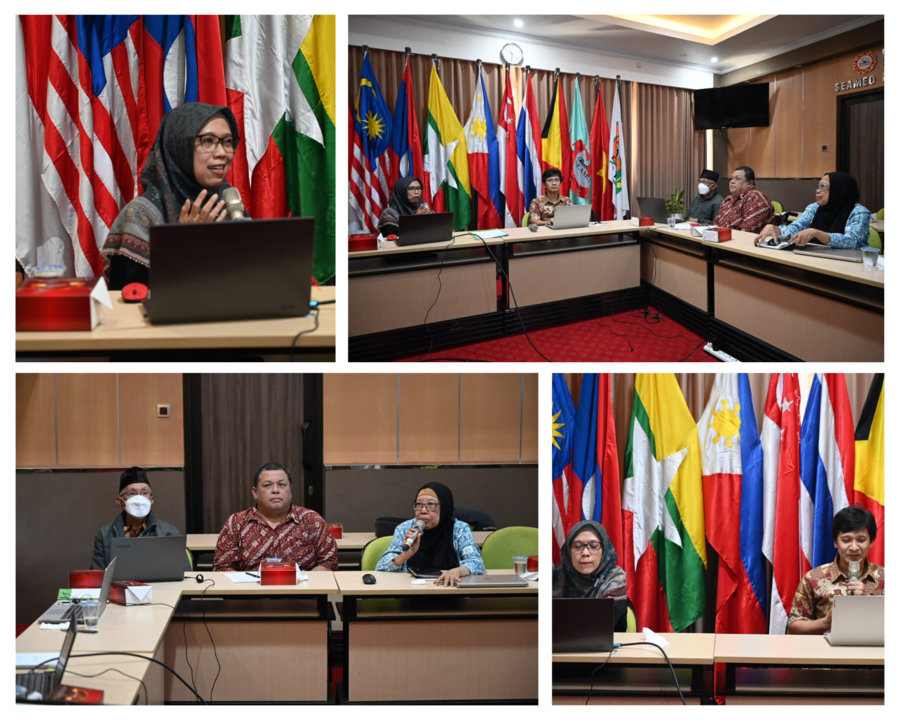SEAMEO BIOTROP, the Southeast Asian Regional Center for Tropical Biology, has taken a significant step towards enhancing its biodiversity data management. On Thursday, September 7, 2023, SEAMEO BIOTROP conducted a hybrid Focus Group Discussion (FGD) on Biodiversity Database Development at its headquarter in Bogor.
The discussion centered around the integration and development of SEAMEO BIOTROP's diverse database collections, such as herbarium specimens of plants, insects and fungi. The collection is the result of research, training and collection of exploration results from researchers and students as well as training resource persons that BIOTROP has carried out, in both physical and digital formats. These valuable resources had previously been managed independently, prompting the need for a synchronized system. The initiative to design and implement such a system was launched by SEAMEO BIOTROP in 2022, with a series of workshops and FGDs dedicated to biodiversity database development. The recent FGD aimed to finalize the conceptual framework and draft the system architecture.
The resource person for this workshop including Dr. Nurainas from Andalas University. Dr Nurainas presented her insights on "Managing Herbarium Specimen Data at Andalas University". She highlighted the establishment of Herbarium Andalas in 1983 and its international recognition since October 2010. Currently, Herbarium Andalas houses over 60,000 collections. Dr. Nurainas also discussed the process of herbarium management, digitalization, and the various tools used to manage the digital Herbarium collection.
Dr. Atik Retnowati from the Center for Biosystematics and Evolutionary Research (Pusat Riset Biosistematik dan Evolusi BRIN - National Research and Innovation Agency) followed with lessons learned from "Managing Data at Herbarium Bogoriense and Database Development". Dr. Retnowati elaborated on the digitalization efforts at Herbarium Bogoriense, including the Indonesian Biodiversity Information System (IBIS). She emphasized the three main data fields within IBIS, encompassing specimen details, taxonomic information, and related registration numbers. Challenges discussed included data inconsistency, incomplete collection information, changing geographic boundaries, and linguistic variations. Dr. Retnowati also emphasized the importance of planning for current and future data sharing programs and institutional data-sharing policies.
The workshop participants comprised development teams, herbarium staffs, and biodiversity data collectors in BIOTROP, all invested in improving SEAMEO BIOTROP's biodiversity database. The development of a biodiversity database is a multifaceted endeavor that combines cutting-edge technology, ecological expertise, and data management proficiency. Such a database is not merely a collection of species names; it is a dynamic platform that integrates biological data, ecological relationships, and geographical information to provide insights into the intricate interactions within ecosystems.
The discussion was expertly moderated by Dr. Harry Imantho from IPB University, ensuring a productive and informative exchange of ideas.
The discussion was expertly moderated by Dr. Harry Imantho from IPB University, ensuring a productive and informative exchange of ideas.
(sb, hcn)
 Thursday, 07 September 2023 on 12:55pm
Thursday, 07 September 2023 on 12:55pm
